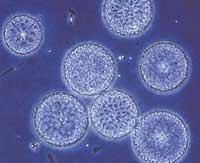This year there is less phytoplankton in Antarctica
The consequences of the iceberg released in March in the Antarctic Ross Sea have already begun to be noticed. The iceberg called B-15, by its size, has been put on the path of small pieces of ice that have then been released and the wind cannot transport to open sea. Therefore, the Ross Sea is covered by a layer of ice higher than normal.

Ice considerably reduces the entry of light into water, which directly affects phytoplankton: this year scientists have seen that there is 40% less phytoplankton.
These are very worrying data if we consider that the food chain of living things in Antarctica is based on phytoplankton. Phytoplankton is the staple food of marine and fish mammals, while feeding on other fish, birds and mammals. In the Ross Sea and its surroundings inhabit 22% of the world population of penguins kings and 30% of Adelie penguins.





